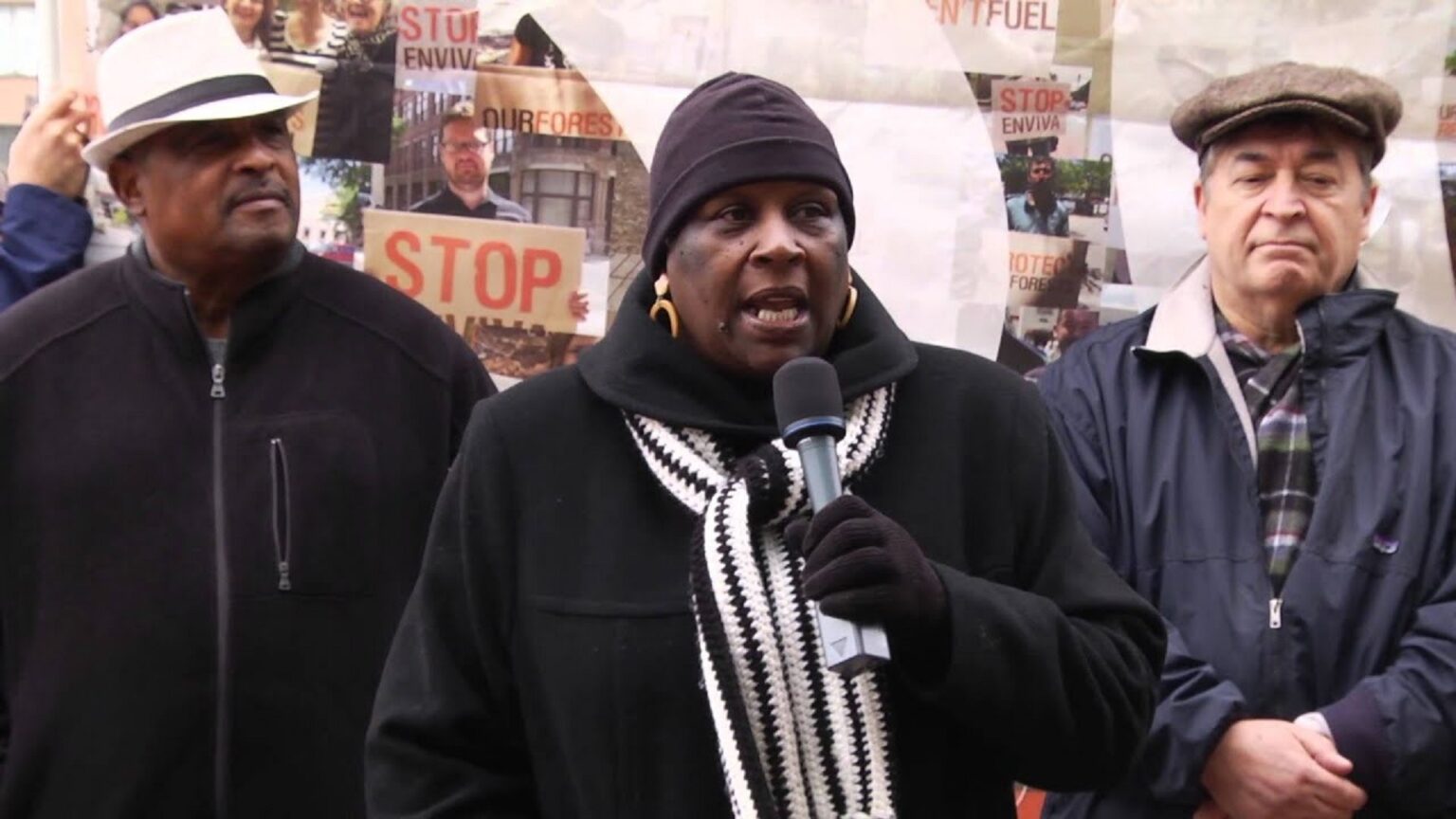I live in Northampton County in the U.S. state of North Carolina, where absentee companies have been polluting for years. My neighbors and I are tired of having our community treated as a dumping ground. This community is my home, it’s where I grew up, and we have been fighting polluters for more than 25 years — a large natural gas pipeline and the nearby Enviva wood-pellet biomass production facility are just two of the most recent developments.
My community is predominantly African American and one in five of my neighbors live below the poverty line, which flies in the face of the promises these same companies have made for decades: that we should accept pollution in return for economic development. I’m here to say that Enviva’s biomass production is no different than the other polluters we have battled and I’m dismayed that the broken promises are no longer just about jobs, but about the environment, too.
Scientists tell us that power plants that burn biomass from forests, relying on wood pellets produced at facilities like the one in Northampton’s backyard, emit massive amounts of carbon pollution that’s heating up our planet and making floods, droughts, and natural disasters worse. Government leaders and the public have been falsely led to believe burning biomass is part of the solution to climate change, but it’s not.
Drax power station, for example, is now the world’s largest biomass-burner and the biggest single source of the UK’s carbon dioxide emissions. Nevertheless, according to 2020 estimates, Drax earned nearly £3 million a day in direct subsidies from the UK government, with UK taxpayers set to spend £10 billion supporting Drax up until 2027. But that’s not the extent of the damage.
Many people don’t realize that the biomass industry is hurting communities like mine in the Southeastern United States, where most of the trees burned in the UK for electricity are cut down, turned into pellets, and shipped across the Atlantic Ocean. Making millions of these wood pellets robs us of our natural heritage by harming forests that are sometimes hundreds of years old. It also pollutes the air and makes us sick. Northampton is ranked as one of the least healthy counties in North Carolina.
I’m ready for the Governor of North Carolina to do more, as well as the President of the United States, but the UK’s enormous demand for biomass is the largest driver of this problem and so UK officials must be held accountable. I turn to UK leaders with an earnest request to stop subsidizing the biomass industry since it drives demand for wood pellets manufactured at Enviva – making our lives miserable.
‘Nightmare’
My neighbors and I fought back against Enviva pursuing permits to build their facility in our community. We didn’t want it. However, gaining state approval is a mere checkbox exercise when there aren’t laws requiring officials to assess the cumulative burdens of multiple polluting industries all operating in the same community. Environmental justice is considered to be carried out by the state as long as community members are informed that a facility is being permitted. Local leaders and elected officials should be protecting us, but they are not. In fact, our local leaders are allowing Enviva to expand.
You may ask, “why don’t you just move?” I recognize the vulnerability of my community to climate change and corporate extraction and pollution but, again, this is my home and I believe I have a right to a clean, healthy, safe environment right here. Research shows that governments are quick to armor the homes of wealthier communities while declaring poor neighborhoods unsalvageable. That is unjust and inequitable.
Enviva’s wood pellet manufacturing plant is a nightmare. It creates industrial noise so loud, it is impossible for residents to sleep, study, or enjoy being inside or outside their own homes. Dust from the pellet manufacturing process visibly settles on the houses and cars of residents, entering individuals’ lungs. We already have high asthma rates, nose bleeds, heart complications, and other health problems, and Enviva’s wood pellet production is only making it worse. No wonder our community was devastated by COVID-19. In fact, the air quality in our region has been so bad, we were wearing face masks long before the pandemic made it common practice.
The centuries-old trees that are supposed to help clean the air and reduce carbon emissions from the pellet manufacturing and transportation process are no longer there. They were cut down in a matter of days, in part to make wood pellets to produce electricity in other countries, destroying some of our most precious ecosystems and displacing countless animals that now meander in search of a new home.
Enviva promises to sequester carbon by replanting trees. But even if trees are immediately replanted, new trees will not adequately recapture the carbon in the atmosphere. Nor will they provide a home for wildlife in the way they once did. They won’t provide flood control during heavy rains either, making our chances of adapting to climate change rather bleak as floods become commonplace. We can’t renew a centuries-old ecosystem by planting trees. Trees may be renewable, but forests are not.
I ask that the UK government stop subsidizing the biomass industry. Government leaders must heed warnings from experts who have proved burning forest biomass for electricity makes climate change worse and creates unhealthy conditions for frontline communities. Our community has lived with decades of environmental racism. We have been disproportionately impacted by large companies that target low-income communities like mine. We deserve a healthy, happy future but that seems impossible with Enviva in our backyard.
Belinda Joyner is an environmental justice activist and North Carolina resident.
Subscribe to our newsletter
Stay up to date with DeSmog news and alerts







